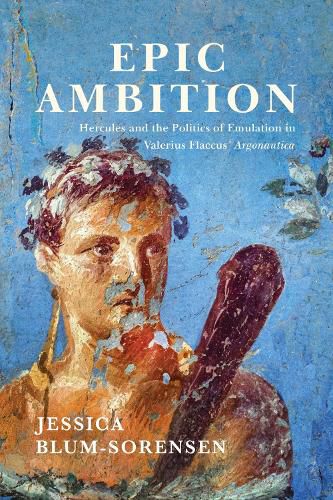Readings Newsletter
Become a Readings Member to make your shopping experience even easier.
Sign in or sign up for free!
You’re not far away from qualifying for FREE standard shipping within Australia
You’ve qualified for FREE standard shipping within Australia
The cart is loading…






This title is printed to order. This book may have been self-published. If so, we cannot guarantee the quality of the content. In the main most books will have gone through the editing process however some may not. We therefore suggest that you be aware of this before ordering this book. If in doubt check either the author or publisher’s details as we are unable to accept any returns unless they are faulty. Please contact us if you have any questions.
By the time the Roman poet Valerius Flaccus wrote in the first century CE, the tale of Jason and his famous ship the Argo had been retold so often it was a byword for poetic banality. Why, then, did Valerius construct his epic Argonautica? In this innovative analysis, Jessica Blum-Sorensen argues that it was precisely the myth's overplayed nature that appealed to Valerius, operating in and responding to a period of social and political upheaval. Seeking to comment obliquely on Roman reliance on mythic exempla to guide action and expected outcomes, there was no better vessel for his social and political message than the familiar Argo.
Focusing especially on Hercules, Blum-Sorensen explores how Valerius' characters-and, by extension, their Roman audience-misinterpret exemplars of past achievement, or apply them to sad effect in changed circumstances. By reading such models as normative guides to epic triumph, Valerius' Argonauts find themselves enacting tragic outcomes: effectively, the characters impose their nostalgic longing for epic triumph on the events before them, even as Valerius and his audience anticipate the tragedy awaiting his heroes. Valerius thus questions Rome's reliance on the past as a guide to the present, allowing for doubt about the empire's success under the new Flavian regime. It is the literary tradition's exchange between triumphant epic and tragedy that makes the Argo's voyage a perfect vehicle for Valerius' exploration: the tensions between genres both raise and prohibit resolution of anxieties about how the new age-mythological or real-will turn out.
$9.00 standard shipping within Australia
FREE standard shipping within Australia for orders over $100.00
Express & International shipping calculated at checkout
This title is printed to order. This book may have been self-published. If so, we cannot guarantee the quality of the content. In the main most books will have gone through the editing process however some may not. We therefore suggest that you be aware of this before ordering this book. If in doubt check either the author or publisher’s details as we are unable to accept any returns unless they are faulty. Please contact us if you have any questions.
By the time the Roman poet Valerius Flaccus wrote in the first century CE, the tale of Jason and his famous ship the Argo had been retold so often it was a byword for poetic banality. Why, then, did Valerius construct his epic Argonautica? In this innovative analysis, Jessica Blum-Sorensen argues that it was precisely the myth's overplayed nature that appealed to Valerius, operating in and responding to a period of social and political upheaval. Seeking to comment obliquely on Roman reliance on mythic exempla to guide action and expected outcomes, there was no better vessel for his social and political message than the familiar Argo.
Focusing especially on Hercules, Blum-Sorensen explores how Valerius' characters-and, by extension, their Roman audience-misinterpret exemplars of past achievement, or apply them to sad effect in changed circumstances. By reading such models as normative guides to epic triumph, Valerius' Argonauts find themselves enacting tragic outcomes: effectively, the characters impose their nostalgic longing for epic triumph on the events before them, even as Valerius and his audience anticipate the tragedy awaiting his heroes. Valerius thus questions Rome's reliance on the past as a guide to the present, allowing for doubt about the empire's success under the new Flavian regime. It is the literary tradition's exchange between triumphant epic and tragedy that makes the Argo's voyage a perfect vehicle for Valerius' exploration: the tensions between genres both raise and prohibit resolution of anxieties about how the new age-mythological or real-will turn out.